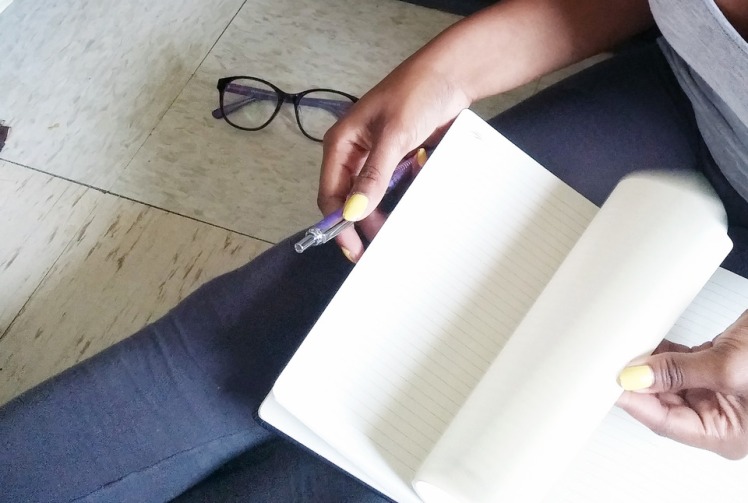
I’m blessed to have an inner-circle comprised of people who never stop acquiring knowledge and skills. Whether training for a first 10K, working to sharpen cooking skills, or embarking upon the one and only PhD, my friends and family members never stop reaching for the stars. We’re a loaded bunch, and I wouldn’t have it any other way.
Recently, I’ve noticed that one of the most common desires among my friends, loved ones and associates has been to master another language. We’re already a truly multilingual bunch, and it’s absolutely magical. I currently speak Spanish and Japanese, my brother speaks French, and our friends speak a fabulous concoction of tongues including Spanish, French, Arabic, Mandarin, Farsi, Portuguese, Twi, Korean, and MORE. As linguistically diverse as we are, each and every one of us yearns to learn yet another. Traveling is at the top of our to-do lists these days, and knowing the language of wherever you’re traveling to makes your destination all the more fun to explore. If you are reading this blog, I am assuming that you have similar aspirations of linguistic achievement! Thus, I thought I would compile a short list of what I did (and still do!) to maintain language fluency and poise.
If you converse with many polyglots (people who speak several languages) they will always emphasize the importance of traveling to other countries to immerse yourself in the language and culture, as well as befriending native speakers. All of this is wonderful advice which I stand by. However, traveling is not always an option for everyone, and everyone doesn’t have access to native speakers. While there are a plethora of online resources that will put you in touch with native speakers (I will blog on this later), I tailored this list specifically for people who don’t yet have access to travel or native speakers, and are learning the basics of the language by themselves. Here goes!

Practice Thinking in Your Language
Weird, right? HA. Not in the slightest! When beginners message me and ask for advice on language learning, this is often one of the first things I tell them. I’ve noticed that people generally don’t understand what this means. As time passes and you spend a lot of time mastering a language, many of us begin to actually have thoughts or dreams that are in that language. To me, it’s wonderful because it means I’m really starting to actually learn the language and become more comfortable using it in public. Thus, even while learning a new language, my advice is to literally force yourself to think in the language you are learning. I don’t care if the only Spanish phrase you know is “I like to swim.” When you think about hobbies and what you like to do, let “Me gusta nadar…” be a thought. As you learn new words and phrases, commit them to memory and intentionally think them often. In my experience, this will do two things for you. 1) You will grow to enjoy thinking in a language different from your native tongue, and will work extra hard to learn all you can to build on those thoughts. 2) You will grow more comfortable speaking the language out loud in front of other people, regardless of how it sounds.
Let’s be honest here. When you were two years old and learning to speak English, did you ever do a thousand boring language drills or beat yourself over the head with grammar lessons? Did your parents give you an “F” for using the wrong conjugations? Absolutely not; you learned the language gradually. When you wanted milk, you said “Mommy, milk!” Everyone understood you then, and they also understood you when you grew up and took grammar in school to polish your native language. It’s seriously time to ditch the boring high-school textbook method of learning a new language. Let the main priority be for you to grow comfortable with it. The grammar lessons will become inevitable as you reach more advanced levels of communication.
Utilize and Maximize Your Media
Music, movies, podcasts, TV, Youtube channels, social media….there are SO many free ways to partially immerse yourself in your new language. A major key to reaching fluency, or at least proficiency, is to really be intentional with what types of media you are consuming. All the above listed criteria are wonderful to me in my language-learning journeys, and can really benefit everyone if used correctly. So, have some fun with your media! Google “top ten Russian artists” or “top five podcasts in Mandarin,” and let these sounds infiltrate your daily life. Follow prominent people and organizations on social media who speak your desired language (because I work in public health and I speak Spanish, I follow the Pan-American Health Organization, etc.!) You’ll see the language on your media timeline more often, and you’ll try to understand the meaning of their posts! While getting ready in the mornings, watch or listen to the news in your desired language. Listen to fun podcasts that speak the language at a slow, understandable pace. Radio Lingua is a wonderful podcast on SoundCloud that provides very interesting content in a myriad of languages. Ditch that overplayed mediocre mumbo-jumbo on the radio in the mornings and put on an audiobook in the language you are trying to learn. Or, listen to popular music artists who speak your language, and jam out! You’ll learn not only regular speech patterns, but also poetic styles and figurative language. It’s a win-win situation.
Invest in Products that Actually Help You
When Rosetta Stone first came out, everybody and their mother claimed that this was THE Holy Grail to effective language learning. Some people bought it immediately and agreed that it was; others bought it and got their money back the following week. What works for some DOES NOT work for everybody. It’s okay to not hop on the latest trends and items. However, it’s mandatory that you figure out what method of learning works best for you, and the sooner, the better. Are you a visual learner, or are you more auditory? Do you prefer to read and write? How about kinetic learning? Maybe you are a combination of all four, and can utilize a plethora of language-learning materials. Visit the foreign language section at Barnes and Noble and look at the wide array of books, dictionaries, guides, and electronic sources. Thoroughly look through them, and see which ones captivate you. Don’t buy that ten-thousand pound French dictionary if you know good and well you aren’t going to crack it open. All that will do is leave you feeling overwhelmed and ultimately discouraged. In addition to physical copies of material, there are countless language-learning apps that I have utilized and found beneficial, including Duolingo, Memrise, BBC Languages, and Foreign Services Institute. Find out which language apps work best for you and your schedule, and make the most of them! Babbel is one of my absolute favorite on-the-go language-learning apps that tailors your entire experience and lesson plan based on your current knowledge level. I get to utilize Babbel on the subway during my morning commute, and while the full version does have a small price, it’s significantly cheaper than Rosetta Stone. Click here to learn more about Babbel, and decide if they would be a good fit for you!
As mentioned earlier, it’s also highly recommended to connect with native speakers, either virtually or in real life, to further refine your newly-acquired skills. Part Two in this series will describe apps and programs that cater to this type of learning. Learning to speak a foreign language as an adult is nowhere near impossible; it does, however, require one to be a self-starter. If you’re truly interested on learning a new language but aren’t yet sure how to start, try these three tips today!
Photo Credit: Adriana Scauri
Great tips !
LikeLiked by 1 person
Thank you! I”m so glad you enjoyed them!
LikeLike
Great tips thank you !:)
LikeLiked by 1 person
Thank you so much!! I’m glad you found the tips helpful! ❤
LikeLiked by 1 person